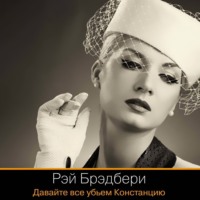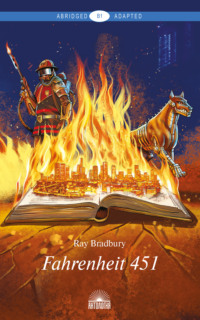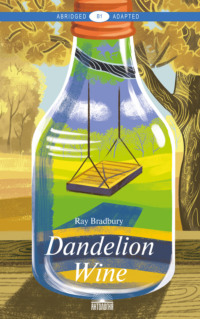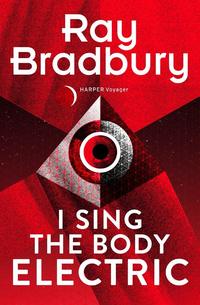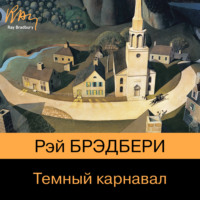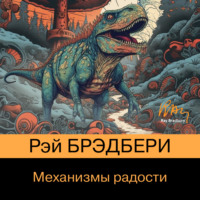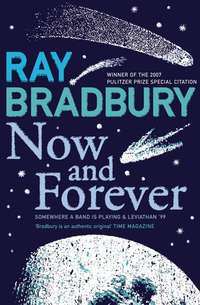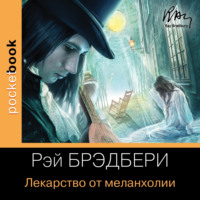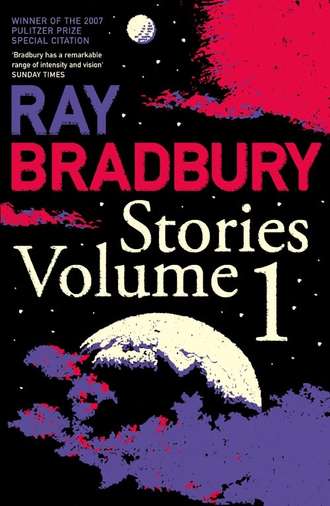
Полная версия
Ray Bradbury Stories Volume 1
At the top of the stairs, flapping, he heard his mother cry, ‘Stop, Timothy!’ far below. ‘Hey!’ shouted Timothy, and leaped off the top of the well, thrashing.
Halfway down, the wings he thought he owned dissolved. He screamed. Uncle Einar caught him.
Timothy flailed whitely in the receiving arms. A voice burst out of his lips, unbidden. ‘This is Cecy! This is Cecy! Come see me, all of you, upstairs, first room on the left!’ Followed by a long trill of high laughter. Timothy tried to cut it off with his tongue.
Everybody was laughing. Einar set him down. Running through the crowding blackness as the relatives flowed upstairs toward Cecy’s room to congratulate her, Timothy banged the front door open.
‘Cecy. I hate you. I hate you!’
By the sycamore tree, in deep shadow, Timothy spewed out his dinner, sobbed bitterly and thrashed in a pile of autumn leaves. Then he lay still. From his blouse pocket, from the protection of the matchbox he used for his retreat, the spider crawled forth. Spid walked along Timothy’s arm. Spid explored up his neck to his ear and climbed in the ear to tickle it. Timothy shook his head. ‘Don’t, Spid. Don’t.’
The feathery touch of a tentative feeler probing his eardrum set Timothy shivering. ‘Don’t, Spid!’ He sobbed somewhat less.
The spider traveled down his cheek, took a station under the boy’s nose, looked up into the nostrils as if to seek the brain, and then clambered softly up over the rim of the nose to sit, to squat there peering at Timothy with green-gem eyes until Timothy filled with ridiculous laughter. ‘Go away, Spid!’
Timothy sat up, rustling the leaves. The land was very bright with the moon. In the house he could hear the faint ribaldry as Mirror, Mirror was played. Celebrants shouted, dimly muffled, as they tried to identify those of themselves whose reflections did not, had not ever, appeared in a glass.
‘Timothy.’ Uncle Einar’s wings spread and twitched and came in with a sound like kettledrums. Timothy felt himself plucked up like a thimble and set upon Einar’s shoulder. ‘Don’t feel badly, Nephew Timothy. Each to his own, each in his own way. How much better things are for you. How rich. The world’s dead for us. We’ve seen so much of it, believe me. Life’s best to those who live the least of it. It’s worth more per ounce, Timothy, remember that.’
The rest of the black morning, from midnight on, Uncle Einar led him about the house, from room to room, weaving and singing. A horde of late arrivals set the entire hilarity off afresh. Great-great-great-great and a thousand more great-greats Grandmother was there, wrapped in Egyptian cerements. She said not a word, but lay straight as a burnt ironing board against the wall, her eye hollows cupping a distant, wise, silent glimmering. At the breakfast, at four in the morning, one-thousand-odd-greats Grandmama was stiffly seated at the head of the longest table.
The numerous young cousins caroused at the crystal punch bowl. Their shiny olive-pit eyes, their conical, devilish faces and curly bronze hair hovered over the drinking table, their hard-soft, half-girl half-boy bodies wrestling against each other as they got unpleasantly, sullenly drunk. The wind got higher, the stars burned with fiery intensity, the noises redoubled, the dances quickened, the drinking became more positive. To Timothy there were thousands of things to hear and watch. The many darknesses roiled, bubbled, the many faces passed and repassed …
‘Listen!’
The party held its breath. Far away the town clock struck its chimes, saying six o’clock. The party was ending. In time to the rhythm of the striking clock, their one hundred voices began to sing songs that were four hundred years old, songs Timothy could not know. Arms twined, circling slowly, they sang, and somewhere in the cold distance of morning the town clock finished out its chimes and quieted.
Timothy sang. He knew no words, no tune, yet the words and tune came round and high and good. And he gazed at the closed door at the top of the stairs.
‘Thanks, Cecy,’ he whispered. ‘You’re forgiven. Thanks.’
Then he just relaxed and let the words move, with Cecy’s voice, free from his lips.
Good-bys were said, there was a great rustling. Mother and Father stood at the door to shake hands and kiss each departing relative in turn. The sky beyond the open door colored in the east. A cold wind entered. And Timothy felt himself seized and settled in one body after another, felt Cecy press him into Uncle Fry’s head so he stared from the wrinkled leather face, then leaped in a flurry of leaves up over the house and awakening hills …
Then, loping down a dirt path, he felt his red eyes burning, his fur pelt rimed with morning, as inside Cousin William he panted through a hollow and dissolved away …
Like a pebble in Uncle Einar’s mouth, Timothy flew in a webbed thunder, filling the sky. And then he was back, for all time, in his own body.
In the growing dawn, the last few were embracing and crying and thinking how the world was becoming less a place for them. There had been a time when they had met every year, but now decades passed with no reconciliation. ‘Don’t forget,’ someone cried, ‘we meet in Salem in 1970!’
Salem. Timothy’s numbed mind turned the words over. Salem, 1970. And there would be Uncle Fry and a thousand-times-great Grandmother in her withered cerements, and Mother and Father and Ellen and Laura and Cecy and all the rest. But would he be there? Could he be certain of staying alive until then?
With one last withering blast, away they all went, so many scarves, so many fluttery mammals, so many sere leaves, so many whining and clustering noises, so many midnights and insanities and dreams.
Mother shut the door. Laura picked up a broom. ‘No,’ said Mother. ‘We’ll clean tonight. Now we need sleep.’ And the family vanished down cellar and upstairs. And Timothy moved in the crape-littered hall, his head down. Passing a party mirror, he saw the pale mortality of his face all cold and trembling.
‘Timothy,’ said Mother.
She came to touch her hand on his face. ‘Son,’ she said, ‘we love you. Remember that. We all love you. No matter how different you are, no matter if you leave us one day.’ She kissed his cheek. ‘And if and when you die, your bones will lie undisturbed, we’ll see to that. You’ll lie at ease forever, and I’ll come visit every Allhallows Eve and tuck you in the more secure.’
The house was silent. Far away the wind went over a hill with its last cargo of dark bats, echoing, chittering.
Timothy walked up the steps, one by one, crying to himself all the way.
Uncle Einar
‘It will take only a minute,’ said Uncle Einar’s sweet wife.
‘I refuse,’ he said. ‘And that takes but a second.’
‘I’ve worked all morning,’ she said, holding to her slender back, ‘and you won’t help? It’s drumming for a rain.’
‘Let it rain,’ he cried, morosely. ‘I’ll not be pierced by lightning just to air your clothes.’
‘But you’re so quick at it.’
‘Again, I refuse.’ His vast tarpaulin wings hummed nervously behind his indignant back.
She gave him a slender rope on which were tied four dozen fresh-washed clothes. He turned it in his fingers with distaste. ‘So it’s come to this,’ he muttered, bitterly. ‘To this, to this, to this.’ He almost wept angry and acid tears.
‘Don’t cry; you’ll wet them down again,’ she said. ‘Jump up, now, run them about.’
‘Run them about.’ His voice was hollow, deep, and terribly wounded. ‘I say: let it thunder, let it pour!’
‘If it was a nice, sunny day I wouldn’t ask,’ she said, reasonably. ‘All my washing gone for nothing if you don’t. They’ll hang about the house—’
That did it. Above all, he hated clothes flagged and festooned so a man had to creep under on the way across a room. He jumped up. His vast green wings boomed. ‘Only so far as the pasture fence!’
Whirl: up he jumped, his wings chewed and loved the cool air. Before you’d say Uncle Einar Has Green Wings he sailed low across his farmland, trailing the clothes in a vast fluttering loop through the pounding concussion and backwash of his wings!
‘Catch!’
Back from the trip, he sailed the clothes, dry as popcorn, down on a series of clean blankets she’d spread for their landing.
‘Thank you!’ she cried.
‘Gahh!’ he shouted, and flew off under the apple tree to brood.
Uncle Einar’s beautiful silklike wings hung like sea-green sails behind him, and whirred and whispered from his shoulders when he sneezed or turned swiftly. He was one of the few in the Family whose talent was visible. All his dark cousins and nephews and brothers hid in small towns across the world, did unseen mental things or things with witch-fingers and white teeth, or blew down the sky like fire-leaves, or loped in forests like moon-silvered wolves. They lived comparatively safe from normal humans. Not so a man with great green wings.
Not that he hated his wings. Far from it! In his youth he’d always flown nights, because nights were rare times for winged men! Daylight held dangers, always had, always would; but nights, ah, nights, he had sailed over islands of cloud and seas of summer sky. With no danger to himself. It had been a rich, full soaring, an exhilaration.
But now he could not fly at night.
On his way home to some high mountain pass in Europe after a Homecoming among Family members in Mellin Town, Illinois (some years ago) he had drunk too much rich crimson wine. ‘I’ll be all right,’ he had told himself, vaguely, as he beat his long way under the morning stars, over the moon-dreaming country hills beyond Mellin Town. And then – crack out of the sky—
A high-tension tower.
Like a netted duck! A great sizzle! His face blown black by a blue sparkler of wire, he fended off the electricity with a terrific back-jumping percussion of his wings, and fell.
His hitting the moonlit meadow under the tower made a noise like a large telephone book dropped from the sky.
Early the next morning, his dew-sodden wings shaking violently, he stood up. It was still dark. There was a faint bandage of dawn stretched across the east. Soon the bandage would stain and all flight would be restricted. There was nothing to do but take refuge in the forest and wait out the day in the deepest thicket until another night gave his wings a hidden motion in the sky.
In this fashion he met his wife.
During the day, which was warm for November first in Illinois country, pretty young Brunilla Wexley was out to udder a lost cow, for she carried a silver pail in one hand as she sidled through thickets and pleaded cleverly to the unseen cow to please return home or burst her gut with unplucked milk. The fact that the cow would have most certainly come home when her teats needed pulling did not concern Brunilla Wexley. It was a sweet excuse for forest-journeying, thistle-blowing, and flower-chewing; all of which Brunilla was doing as she stumbled upon
Asleep near a bush, he seemed a man under a green shelter.
‘Oh,’ said Brunilla, with a fever. ‘A man. In a camp-tent.’
Uncle Einar awoke. The camp-tent spread like a large green fan behind him.
‘Oh,’ said Brunilla, the cow-searcher. ‘A man with wings.’
That was how she took it. She was startled, yes, but she had never been hurt in her life, so she wasn’t afraid of anyone, and it was a fancy thing to see a winged man and she was proud to meet him. She began to talk. In an hour they were old friends, and in two hours she’d quite forgotten his wings were there. And he somehow confessed how he happened to be in this wood.
‘Yes, I noticed you looked banged around,’ she said. ‘That right wing looks very bad. You’d best let me take you home and fix it. You won’t be able to fly all the way to Europe on it, anyway. And who wants to live in Europe these days?’
He thanked her, but he didn’t quite see how he could accept.
‘But I live alone,’ she said. ‘For, as you see, I’m quite ugly.’
He insisted she was not.
‘How kind of you,’ she said. ‘But I am, there’s no fooling myself. My folks are dead, I’ve a farm, a big one, all to myself, quite far from Mellin Town, and I’m in need of talking company.’
But wasn’t she afraid of him? he asked.
‘Proud and jealous would be more near it,’ she said. ‘May I?’ And she stroked his large green membraned veils with careful envy. He shuddered at the touch and put his tongue between his teeth.
So there was nothing for it but that he come to her house for medicaments and ointments, and my! what a burn across his face, beneath his eyes! ‘Lucky you weren’t blinded,’ she said. ‘How’d it happen?’
‘Well …’ he said, and they were at her farm, hardly noticing they’d walked a mile, looking at each other.
A day passed, and another, and he thanked her at her door and said he must be going, he much appreciated the ointment, the care, the lodging. It was twilight and between now, six o’clock, and five the next morning, he must cross an ocean and a continent. ‘Thank you; good-by,’ he said, and started to fly off in the dusk and crashed right into a maple tree.
‘Oh!’ she screamed, and ran to his unconscious body.
When he waked the next hour he knew he’d fly no more in the dark again ever; his delicate night-perception was gone. The winged telepathy that had warned him where towers, trees, houses and hills stood across his path, the fine clear vision and sensibility that had guided him through mazes of forest, cliff, and cloud, all were burnt forever by that strike across his face, that blue electric fry and sizzle.
‘How?’ he moaned softly. ‘How can I go to Europe? If I flew by day, I’d be seen and – miserable joke – maybe shot down! Or kept for a zoo perhaps, what a life that’d be! Brunilla, tell me, what shall I do?’
‘Oh,’ she whispered, looking at her hands. ‘We’ll think of something …’
They were married.
The Family came for the wedding. In a great autumnal avalanche of maple, sycamore, oak, elm leaf, they hissed and rustled, fell in a shower of horse-chestnut, thumped like winter apples on the earth, with an overall scent of farewell-summer on the wind they made in their rushing. The ceremony? The ceremony was brief as a black candle lit, blown out, and smoke left still on the air. Its briefness, darkness, upside-down and backward quality escaped Brunilla, who only listened to the great tide of Uncle Einar’s wings faintly murmuring above them as they finished out the rite. And as for Uncle Einar, the wound across his nose was almost healed and, holding Brunilla’s arm, he felt Europe grow faint and melt away in the distance.
He didn’t have to see very well to fly straight up, or come straight down. It was only natural that on this night of their wedding he take Brunilla in his arms and fly right up into the sky.
A farmer, five miles over, glanced at a low cloud at midnight, saw faint glows and crackles.
‘Heat lightning,’ he observed, and went to bed.
They didn’t come down till morning, with the dew.
The marriage took. She had only to look at him, and it lifted her to think she was the only woman in the world married to a winged man. ‘Who else could say it?’ she asked her mirror. And the answer was: ‘No one!’
He, on the other hand, found great beauty behind her face, great kindness and understanding. He made some changes in his diet to fit her thinking, and was careful with his wings about the house; knocked porcelains and broken lamps were nerve-scrapers, he stayed away from them. He changed his sleeping habits, since he couldn’t fly nights now anyhow. And she in turn fixed chairs so they were comfortable for his wings, put extra padding here or took it out there, and the things she said were the things he loved her for. ‘We’re in our cocoons, all of us. See how ugly I am?’ she said. ‘But one day I’ll break out, spread wings as fine and handsome as you.’
‘You broke out long ago,’ he said.
She thought it over. ‘Yes,’ she had to admit. ‘I know just which day it was, too. In the woods when I looked for a cow and found a tent!’ They laughed, and with him holding her she felt so beautiful she knew their marriage had slipped her from her ugliness, like a bright sword from its case.
They had children. At first there was fear, all on his part, that they’d be winged.
‘Nonsense, I’d love it!’ she said. ‘Keep them out from under foot.’
‘Then,’ he exclaimed, ‘they’d be in your hair!’
‘Ow!’ she cried.
Four children were born, three boys and a girl, who, for their energy, seemed to have wings. They popped up like toadstools in a few years, and on hot summer days asked their father to sit under the apple tree and fan them with his cooling wings and tell them wild starlit tales of island clouds and ocean skies and textures of mist and wind and how a star tastes melting in your mouth, and how to drink cold mountain air, and how it feels to be a pebble dropped from Mt. Everest, turning to a green bloom, flowering your wings just before you strike bottom!
This was his marriage.
And today, six years later, here sat Uncle Einar, here he was, festering under the apple tree, grown impatient and unkind; not because this was his desire, but because after the long wait, he was still unable to fly the wild night sky: his extra sense had never returned. Here he sat despondently, nothing more than a summer sun-parasol, green and discarded, abandoned for the season by the reckless vacationers who once sought the refuge of its translucent shadow. Was he to sit here forever, afraid to fly by day because someone might see him? Was his only flight to be as a drier of clothes for his wife, or a fanner of children on hot August noons? His one occupation had always been flying Family errands, quicker than storms. A boomerang, he’d whickled over hills and valleys and like a thistle, landed. He had always had money; the Family had good use for their winged man! But now? Bitterness! His wings jittered and whisked the air and made a captive thunder.
‘Papa,’ said little Meg.
The children stood looking at his thought-dark face.
‘Papa,’ said Ronald. ‘Make more thunder!’
‘It’s a cold March day, there’ll soon be rain and plenty of thunder,’ said Uncle Einar.
‘Will you come watch us?’ asked Michael.
‘Run on, run on! Let Papa brood!’
He was shut of love, the children of love, and the love of children. He thought only of heavens, skies, horizons, infinities, by night or day, lit by star, moon, or sun, cloudy or clear, but always it was skies and heavens and horizons that ran ahead of you forever when you soared. Yet here he was, sculling the pasture, kept low for fear of being seen.
Misery in a deep well!
‘Papa, come watch us; it’s March!’ cried Meg. ‘And we’re going to the Hill with all the kids from town!’
Uncle Einar grunted. ‘What hill is that?’
‘The Kite Hill, of course!’ they all sang together.
Now he looked at them.
Each held a large paper kite, their faces sweating with anticipation and an animal glowing. In their small fingers were balls of white twine. From the kites, colored red and blue and yellow and green, hung caudal appendages of cotton and silk strips.
‘We’ll fly our kites!’ said Ronald. ‘Won’t you come?’
‘No,’ he said, sadly. ‘I mustn’t be seen by anyone or there’d be trouble.’
‘You could hide and watch from the woods,’ said Meg. ‘We made the kites ourselves. Just because we know how.’
‘How do you know?’
‘You’re our father!’ was the instant cry. ‘That’s why!’
He looked at his children for a long while. He sighed. ‘A kite festival, is it?’
‘Yes, sir!’
‘I’m going to win,’ said Meg.
‘No, I’m!’ Michael contradicted.
‘Me, me!’ piped Stephen.
‘God up the chimney!’ roared Uncle Einar, leaping high with a deafening kettledrum of wings. ‘Children! Children. I love you dearly!’
‘Father, what’s wrong?’ said Michael, backing off.
‘Nothing, nothing, nothing!’ chanted Einar. He flexed his wings to their greatest propulsion and plundering. Whoom! they slammed like cymbals. The children fell flat in the backwash! ‘I have it, I have it! I’m free again! Fire in the flue! Feather on the wind! Brunilla!’ Einar called to the house. His wife appeared. ‘I’m free!’ he called, flushed and tall, on his toes. ‘Listen, Brunilla, I don’t need the night any more! I can fly by day! I don’t need the night! I’ll fly every day and any day of the year from now on! – but, God, I waste time, talking. Look!’
And as the worried members of his family watched, he seized the cotton tail from one of the little kites, tied it to his belt behind, grabbed the twine ball, held one end in his teeth, gave the other end to his children, and up, up into the air he flew, away into the Match wind!
And across the meadows and over the farms his children ran, letting out string to the daylit sky, bubbling and stumbling, and Brunilla stood back in the farmyard and waved and laughed to see what was happening; and her children marched to the far Kite Hill and stood, the four of them, holding the twine in their eager, proud fingers, each tugging and directing and pulling. And the children from Mellin Town came running with their small kites to let up on the wind, and they saw the great green kite leap and hover in the sky and exclaimed:
‘Oh, oh, what a kite! What a kite! Oh, I wish I’d a kite like that! Where, where did you get it!’
‘Our father made it!’ cried Meg and Michael and Stephen and Ronald, and gave an exultant pull on the twine and the humming, thundering kite in the sky dipped and soared and made a great and magical exclamation mark across a cloud!
The Traveler
Father looked into Cecy’s room just before dawn. She lay upon her bed. He shook his head uncomprehendingly and waved at her.
‘Now, if you can tell me what good she does, lying there,’ he said. ‘I’ll eat the crape on my mahogany box. Sleeping all night, eating breakfast, and then lying on top her bed all day.’
‘Oh, but she’s so helpful,’ explained Mother, leading him down the hall away from Cecy’s slumbering pale figure. ‘Why, she’s one of the most adjustable members of the Family. What good are your brothers? Most of them sleep all day and do nothing. At least Cecy is active.’
They went downstairs through the scent of black candles; the black crape on the banister, left over from the Homecoming some months ago and untouched, whispering as they passed. Father unloosened his tie, exhaustedly. ‘Well, we work nights,’ he said. ‘Can we help it if we’re – as you put it – old-fashioned?’
‘Of course not. Everyone in the Family can’t be modern.’ She opened the cellar door; they moved down into darkness arm in arm. She looked over at his round white face, smiling. ‘It’s really very lucky I don’t have to sleep at all. If you were married to a night-sleeper, think what a marriage it would be! Each of us to our own. None of us the same. All wild. That’s how the Family goes. Sometimes we get one like Cecy, all mind: and then there are those like Uncle Einar, all wing; and then again we have one like Timothy, all even and calm and normal. Then there’s you, sleeping days. And me, awake all and all of my life. So Cecy shouldn’t be too much for you to understand. She helps me a million ways each day. She sends her mind down to the green-grocer’s for me, to see what he sells. She puts her mind inside the butcher. That saves me a long trip if he’s fresh out of good cuts. She warns me when gossips are coming to visit and talk away the afternoon. And, well, there are six hundred other things—!’
They paused in the cellar near a large empty mahogany box. He settled himself into it, still not convinced. ‘But if she’d only contribute more,’ he said. ‘I’m afraid I’ll have to ask her to find some sort of work.’


